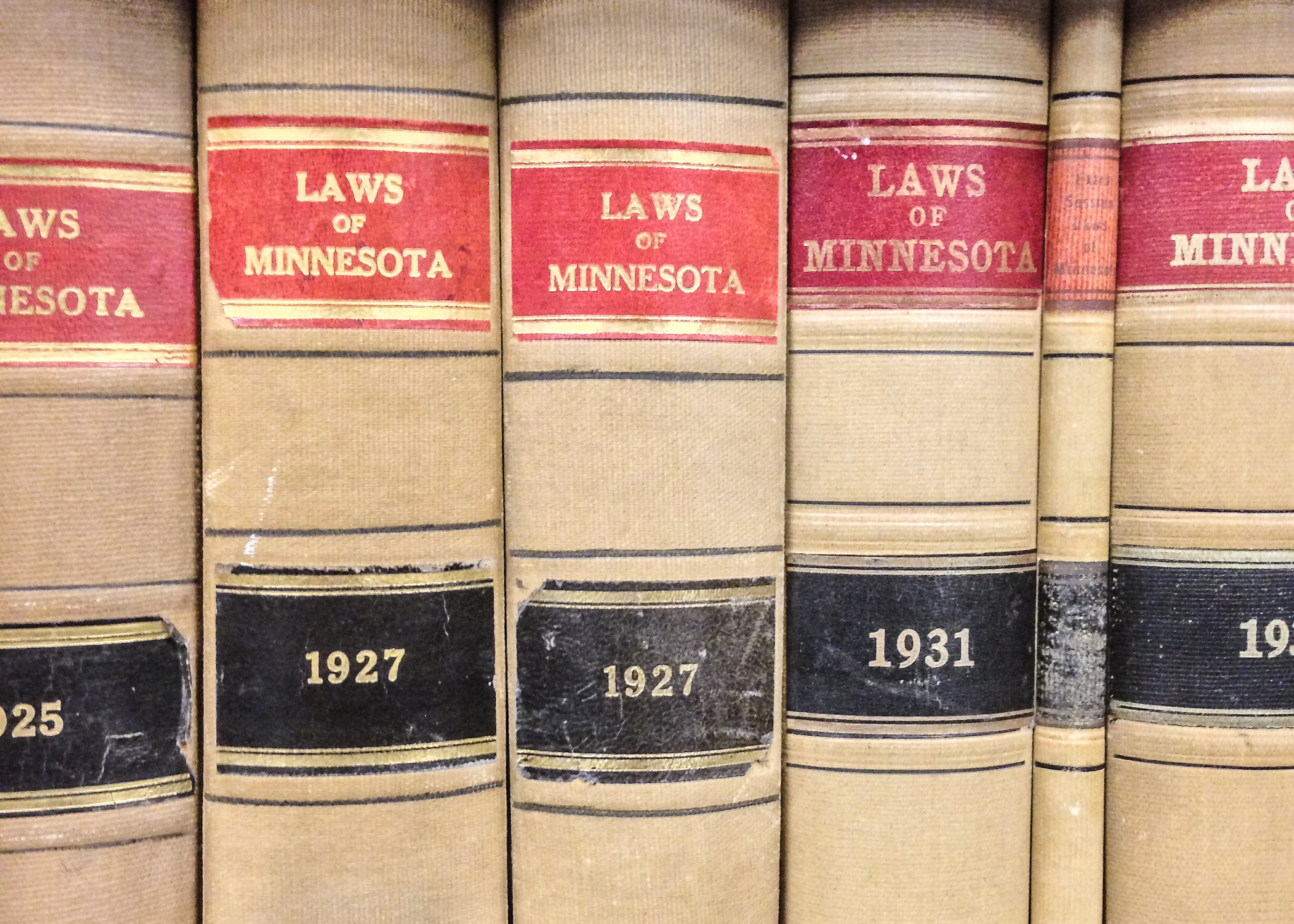The Minnesota DFL's sprawling list of legislative wins this past session has become the stuff of national headlines, so we won't bore you by repeating it. But we will highlight three lesser-known accomplishments that got lost in the shuffle: Anachronistic state laws against sodomy, fornication, and adultery are now off the books.
“It’s pretty awesome we got rid of ‘em; they were effectively moot laws, but having ‘em on the books kinda sucked," says Sen. Scott Dibble (DFL-Minneapolis), a married gay man who authored the 2013 law that legalized same-sex marriage in Minnesota. "They’re relics of a bygone era when people were treated with contempt and marginalized. It goes back to an era in which people thought they could micromanage the space in your life that’s the most intimate, most important, most private.”
Previous bills sought to address the trio of outmoded bedroom laws over the years, Dibble says, though their repeal would have to wait for this year's passage of SF 2909, a sweeping suite of reforms that also nixes antiquated laws around abortion and separately defines "gender identity” and “sexual orientation” for the first time.
The language of the repealed laws feels ripped from fire 'n' brimstone sermons of the First Great Awakening.
"'Sodomy' means carnally knowing any person by the anus or by or with the mouth," read Minnesota statute 609.293. "Whoever... voluntarily engages in or submits to an act of sodomy with another may be sentenced to imprisonment for not more than one year or to payment of a fine of not more than $3,000, or both."
The outrageously sexist definition of adultery ("When a married woman has sexual intercourse with a man other than her husband, whether married or not, both are guilty of adultery") carried the same theoretical sentence, while fornication ("When any man and single woman have sexual intercourse with each other, each is guilty of fornication") was considered a mere misdemeanor.
Minnesotans have been discussing the criminality of sodomy for a long, long time. Here's the Star Tribune's Kevin Diaz, writing in 1991:
As it is, Minnesota's sodomy law seems to be a legal anomaly, living in uneasy coexistence with state and local antidiscrimination edicts and a legacy of liberalism. A largely unenforced prohibition against oral and anal sex, by heterosexuals or homosexuals, the sodomy law has been compared to horse-and-buggy statues—out of date and irrelevant to modern society.
Four years earlier, in 1987, the Minnesota Supreme Court had upheld the sodomy statute in a case involving a 16-year-old male prostitute, the Strib reported. William Roath, executive director of the Minnesota Civil Liberties Union, called the law "a simple prejudice" and vowed to challenge it; the Citizens League considered it a reporting roadblock in the fight against HIV/AIDS. "The law's staunchest defenders are church groups," Diaz wrote, in addition to Christian policy advocate groups who viewed it as a bulwark defending "sexual health and morality."
“I’m old enough to remember, back when I was first becoming politically active in the late '80s, when the LGBTQ community began endorsing candidates for public office," Dibble says. "We’d have ‘em fill out a little questionnaire, and discuss issues that were important to us. I remember two attorney general candidates—Democrats!—who were hesitant, reluctant to support efforts to remove the sodomy laws.”
Back in 2001, the Hennepin County District Court ruled the anti-sodomy law to be unconstitutional "as applied to private, noncommercial acts by consenting adults," a decision that was bound into state law by the U.S. District Court the following year.
Dibble says no active opposition materialized to defend the laws against sodomy, adultery, and fornication during this past session. “Smooth sailing, I don’t recall it coming up," he says. With Minnesota reformed, only nine states still have anti-sodomy laws: North Carolina, South Carolina, Georgia, Florida, Mississippi, Oklahoma, Louisiana, Kansas, and Kentucky.
"Popular opinion seems to be changing," former Minnesota Chief Justice Douglas Amdahl told the Strib in '91. "and that's what the Legislature is designed to address."
Even if the lurching pace of progress takes a few more decades.






